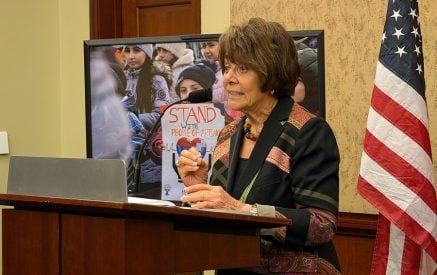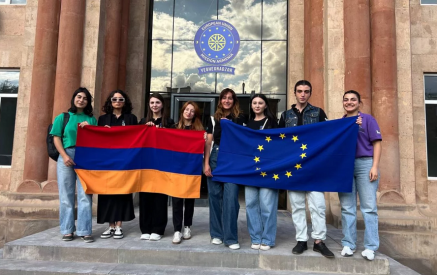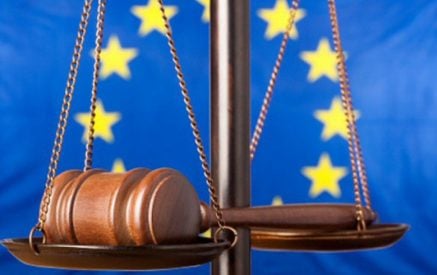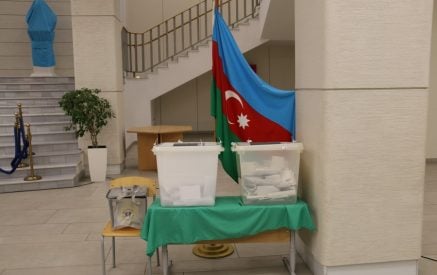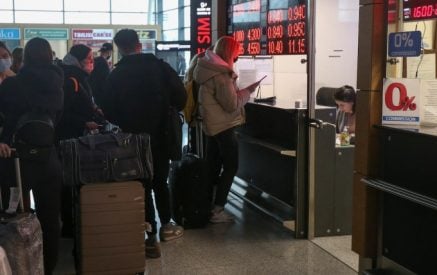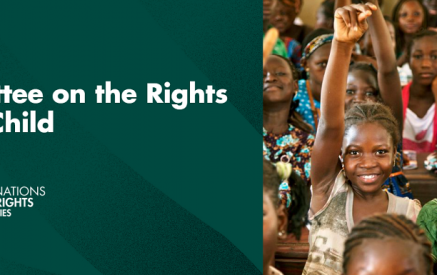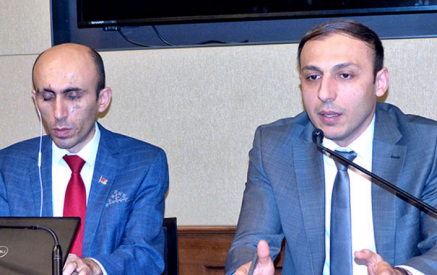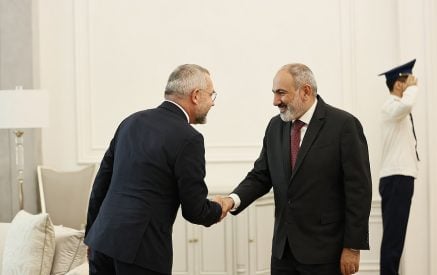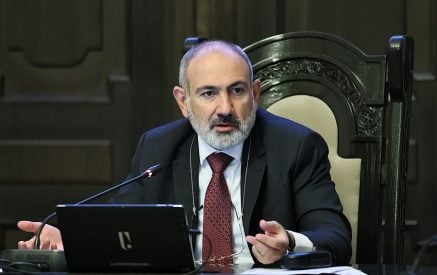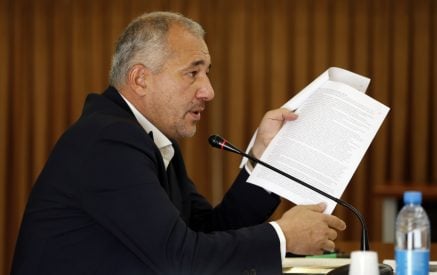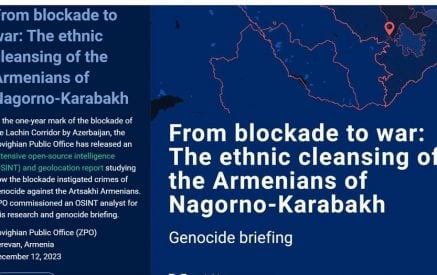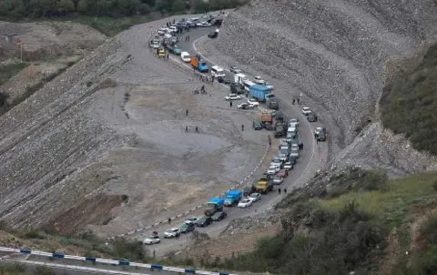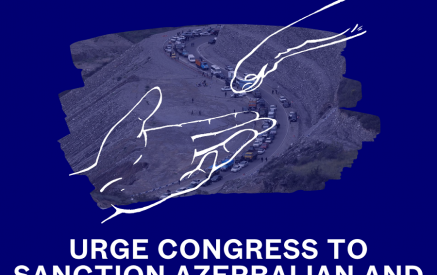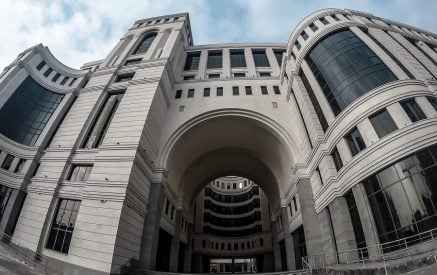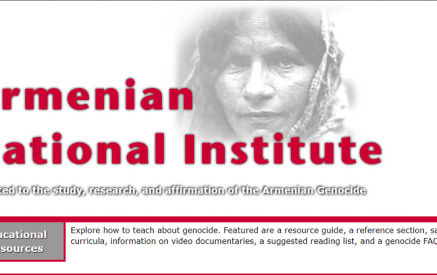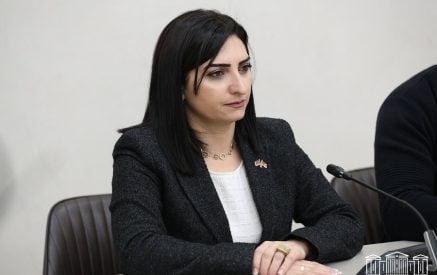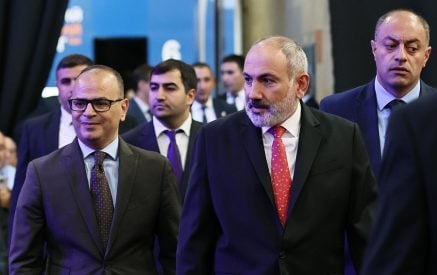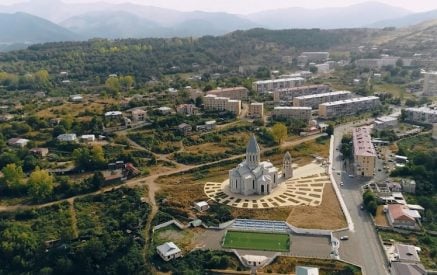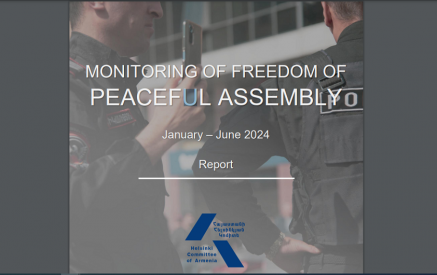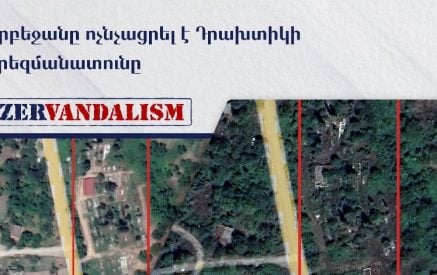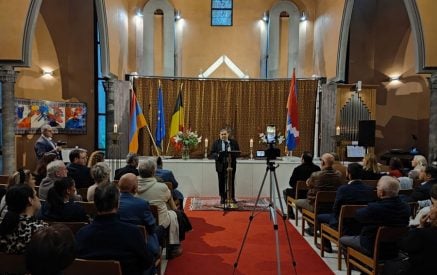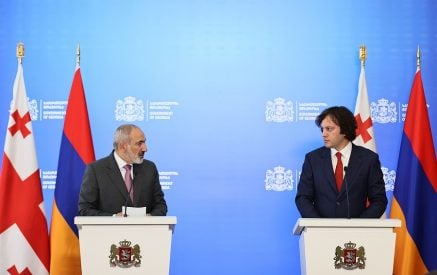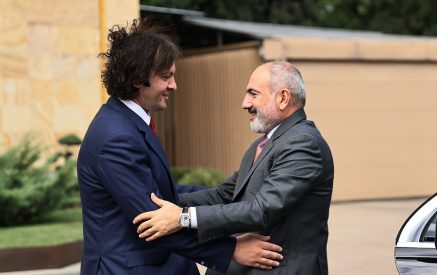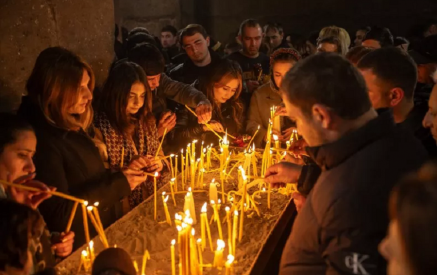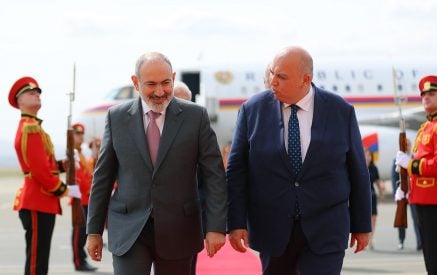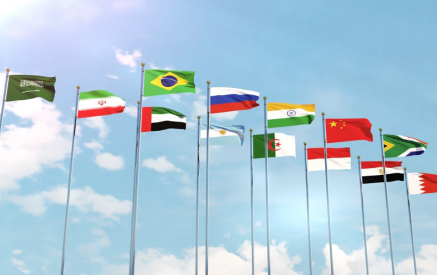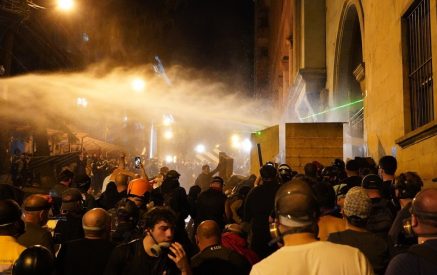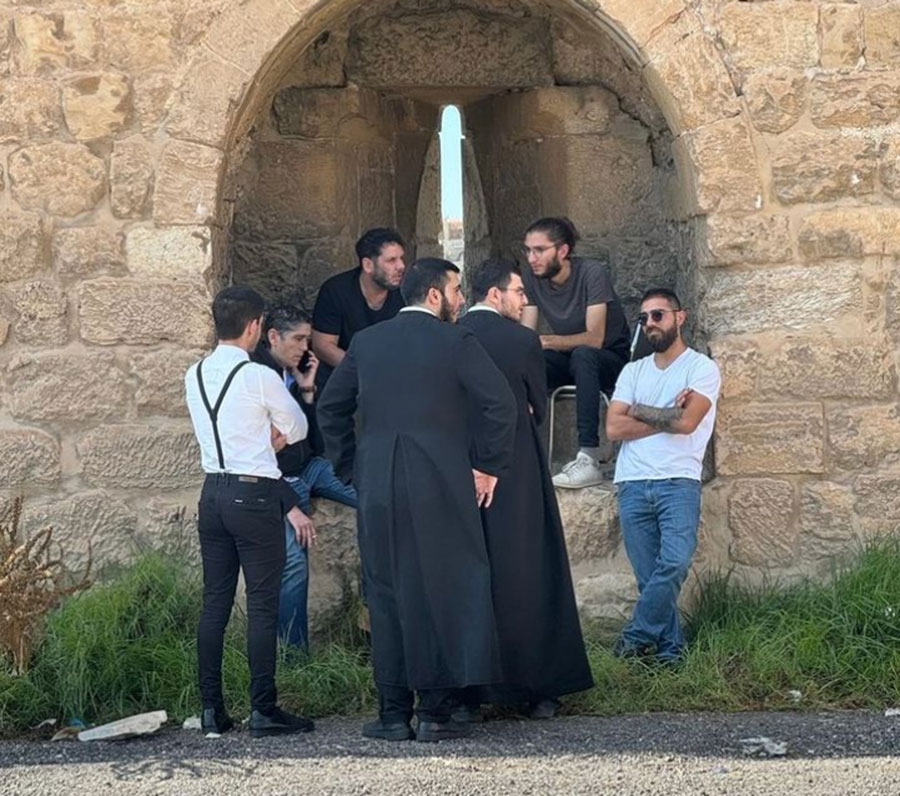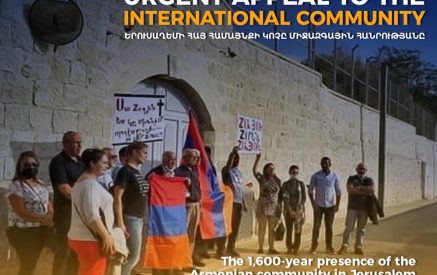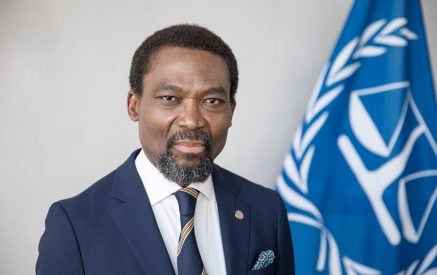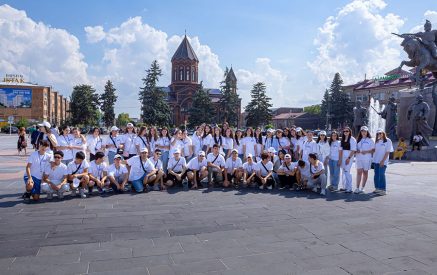by Stepan Piligian
It is a relationship that has maintained a natural affinity for decades – two ethnic groups that have suffered reprehensible oppression based on racism, discrimination and dispossession. The Jewish and Armenian people have built strong American diasporas as a byproduct of their suffering. Both peoples remained stateless in modern times until the 20th century. Israel rose out of the ashes of genocide in 1948. The First Armenian Republic was a miracle amidst post-WWI chaos, only to fall under Soviet rule and regain statehood in 1991. Jews and Armenians in the diaspora have placed a high value on education, remarkable entrepreneurial achievements and clannish cultures that resist assimilation. Faith has also been a central part of each civilization for centuries. There is far more historically that bonds these peoples than divides them. Despite this history, there has been growing and often unspoken tension that has challenged their traditional, mutual respect. Differences have emerged between an ethnic group in the diaspora and the policies of a nation-state.
For several decades the global Armenian nation has been perplexed and upset by the refusal of the State of Israel to formally recognize the Armenian Genocide. It has been a subject of occasional internal debate in the Israeli Knesset but has only been advocated for by a small political minority. The Israeli academia has been more vocal but is essentially powerless in foreign policy matters. In the case of genocide, there is no room for middle ground with vague rhetoric. If you have not recognized the crime committed against the Armenian people as genocide, then you fall into the denier class. There have been several reports in the past that the Israeli government has worked to squash attempts for recognition in the United States and worldwide, based on fears of Turkish repercussions. This argument has been discredited, as countries such as France and the United States have recognized the genocide and maintain significant economic relationships with Turkey. Turkey’s bark on this issue has proven bigger than its bite.
Read also
Armenians have openly speculated about the possibility of Israel’s refusal to share the genocide stage. The current denial is probably associated with Israel’s deep economic and military ties with Azerbaijan, which operates with Turkey as “one nation, two states.” Israel’s position has caused consternation within the American Jewish diaspora. Many Jewish groups have recognized the Armenian Genocide. Former national director of the Anti-Defamation League Abraham Foxman caused a controversy in 2007 when his vague wording of “tantamount to genocide” angered Armenians. The tension continued until 2016 when Foxman’s successor Jonathan Greenblatt issued a clear statement of recognition from the ADL. The recognition of the Genocide by major elements of American Jewry has created an awkward and morally embarrassing dilemma for most Jews in the United States. Similar to Armenians and Armenia, most American Jews have strong relations with the State of Israel. Understandably, Jews in America are uncomfortable with the policy of Israel and feel their moral foundation should take priority over political concerns. The U.S. recognition of the Genocide by the president in 2021, preceded by overwhelming resolutions from the U.S. House and Senate, only increased that dilemma for Jews as American citizens.
If the policy disconnect remained limited to Armenian Genocide denial, the response would be contained to continuing lobbying efforts and dialogue with the hope that when the environment is more favorable, recognition will be achieved. In other words, the lack of recognition is driven by current political considerations and not historical facts. It is a point of significant contention, but no lives are at stake. Unfortunately, Israeli foreign policy is overtly hostile to the security of Armenia and is costing Armenia lives. According to military experts, Israel supplied Azerbaijan with nearly 70-percent of its military arsenal from 2016 to 2020, including heavy artillery, rocket launchers and drones. In return, Azerbaijan supplies Israel with over 40-percent of its fossil fuel energy. There have been several reports that Israel also takes advantage of the Azeri relationship to gather intel on arch-enemy Iran. The United States and Turkey turn a blind eye to this unholy alliance since it benefits both parties.
In the 2020 and 2023 unilateral assaults on Artsakh and Armenia’s border regions, which eventually resulted in the genocidal deportation in Artsakh, Azeris used Israeli weapons to kill Armenians. This is not about free enterprise at work within the military industrial community. The Israeli military suppliers conduct this business with the full knowledge and support of the government. It is a deplorable use of military capability supplied to a rogue dictatorship that has brazenly murdered civilians and violated the sovereignty of Armenia. Israel is complicit in this assault on the Armenians. Israel’s right to exist and to defend itself is not at issue here. It is a morally corrupt policy for a country like Israel founded on the ideals of self-determination and freedom after a horrific attempt at liquidation to deny others their rights.
Some dialogue should be devoted to the misconception that any critics of the policies of Israel are anti-Semitic. Certainly there are anti-Semitic individuals who hide behind criticism, but such is not the case with the interests of Armenians. The current Palestinian/Israeli conflict in Gaza has clearly illustrated that one can criticize the policies of Israel and not be anti-Semitic. Thousands of Jews in America and Israel have raised their voices against the horrific violence, and they clearly support the rights of Jews to practice their culture in freedom. Many Armenians remain silent over the Gaza and Azeri issues for that exact reason. With good reason, no one wants to be labeled “anti-Semitic” just as “racist” is deplorable. Labels become a defense mechanism when antagonists seek to limit the debate. We can respect the rights of Jews (and Israel) and still exercise civil criticism without inappropriate labels. Armenians criticizing the offensive policies of Israel towards Armenians is not anti-Semitic.
The first two examples illustrate some of the diaspora/Israeli policy dynamics in the region. Another area of major concern is the policies of the Israeli government towards the Armenian population in occupied Jerusalem and the West Bank. The current Cows’ Garden crisis is an affront to the centuries-old presence of Armenians in Jerusalem and violates the well-established “status quo” that maintains the shared presence of various religious sites. The Armenian resistance has reached out to the diaspora and Armenia through a group called Save the ArQ. It is important for Armenians to understand that this crisis began with the lease agreement signed by a rogue former priest under the Patriarchate. Several internal controls were violated to sign the lease agreement with a Jewish Australian investor at Xana Capital. The role of the Patriarch has been questioned. He has claimed he was deceived and has since annulled the agreement, which is currently in Israeli courts. Negotiating any agreement was naive at best and perhaps done with ulterior motives.
Armenians in Jerusalem have long been subjected to aggressive Israeli policies that constrain real estate and economic activity. The property in question represents approximately 25-percent of the Armenian Quarter. Losing it would be devastating. Once the Armenian cancellation of the agreement was employed, intimidating tactics, including violence, were used against Armenian clergy and community members. The land grabbing Israeli settlers lurk on the sidelines, waiting for opportunities to steal more land. The illegal tactics used by the “investor” and “settlers” are enabled by the passive response of the Israeli authorities. These are the same tactics the anarchist settlers have used against Palestinian civilians for years with the illegal acquisition of homes, olive groves and other Palestinian properties. This has accelerated under the Netanyahu administration, which has only emboldened oppression.
Armenians tend to decouple our plight in the West Bank from the current carnage in Gaza. There is a common thread in expansionist Israeli policies at the expense of others. While we watch the current violence in horror, we should understand that Palestinians have lived under Israeli occupation with little freedom for decades. Thousands are arrested and jailed while water, energy and the economy are externally controlled. With unspeakable indignities on a daily basis, radical groups such as Hamas become the alternative. This does not justify the terror deployed. Armenians have a variety of opinions on this conflict. Those with roots in the Middle East tend to understand the dynamics with a more balanced perspective.
Given the traditional support of the United States for Israel and cordial diaspora relations, many Armenians have ignored the plight of the Palestinians in favor of Israel’s right to defend itself. The current conflict seems to have altered that perception, as Netanyahu has lost the confidence of most of the world’s nations and the Hamas hunt has evolved into atrocities against Palestinians. Armenians should embrace the concept that Hamas’ terror does not negate the right to self-determination of the Palestinian people. A large plurality is emerging that opposes Hamas’ tactics but supports Palestinian rights. Likewise, the horrific atrocities committed by the Netanyahu government cannot negate the right of the Israeli people to freedom.
As Armenians, we must understand that our brethren and holy presence in Jerusalem and the West Bank are under duress. There are many conservative Israeli settlers who would prefer that the holy sites become museums devoid of any indigenous Christian population. In terms of free expression, is that any different than the Palestinians? The headline of this column uses the term “tragic” to describe the current decline. This tragedy has been created by the policies of the state versus the global ethnic group. It has sharpened the difference between respecting the Jewish people while opposing some of the policies of Israel. Armenians should free themselves by decoupling these two and engaging in the defense of the rights of Armenians. There is a path for meaningful advocacy without the risk of being labeled anti-Semitic.


